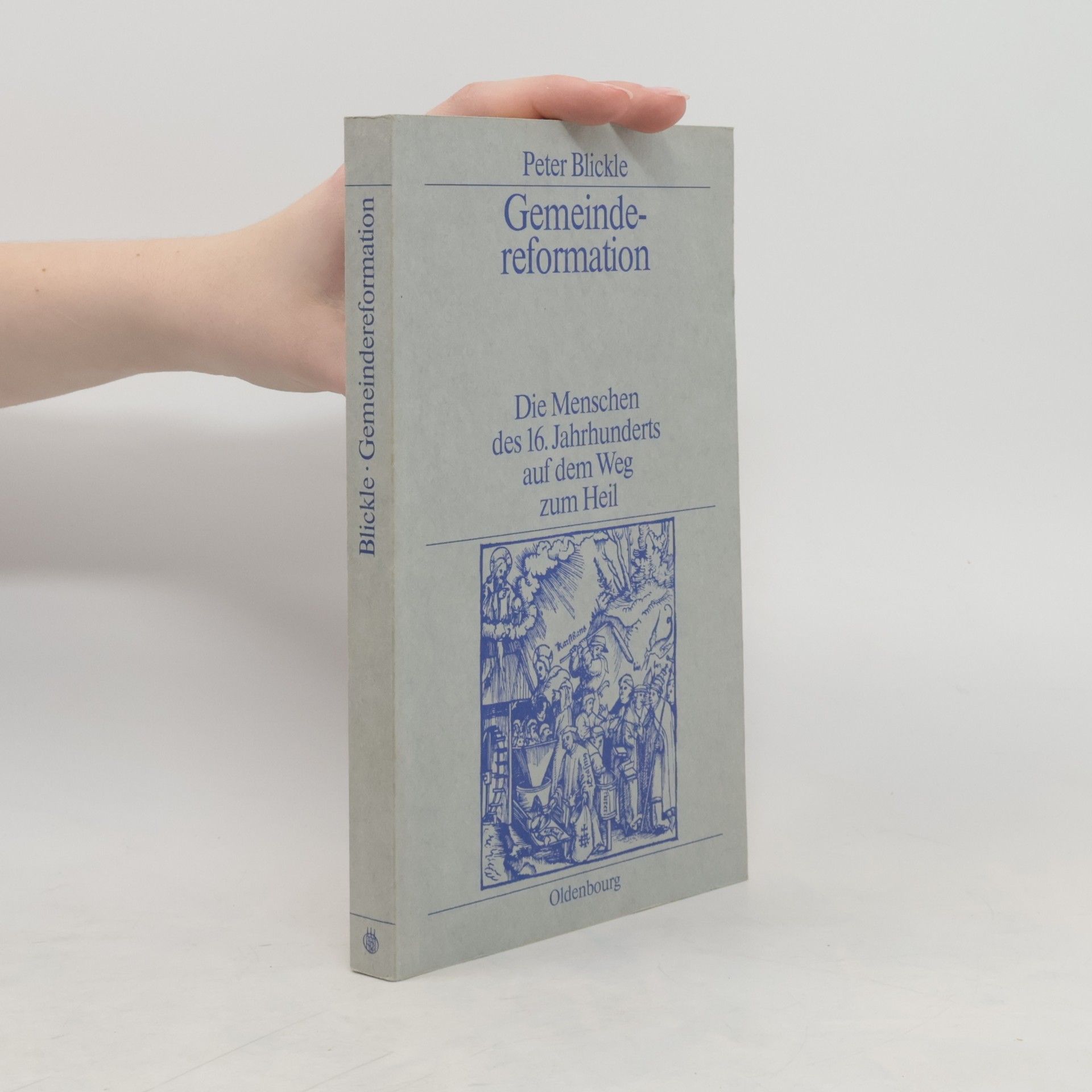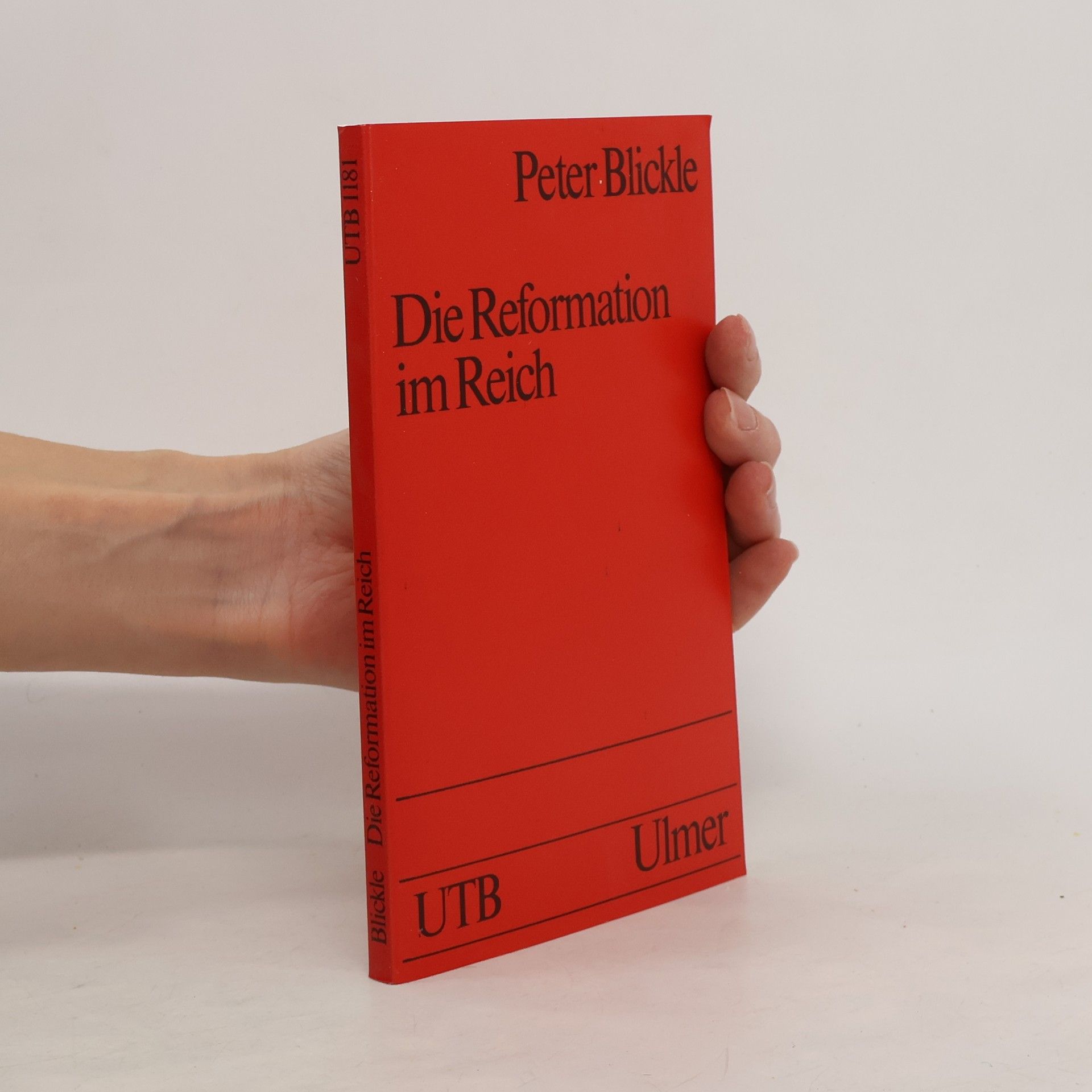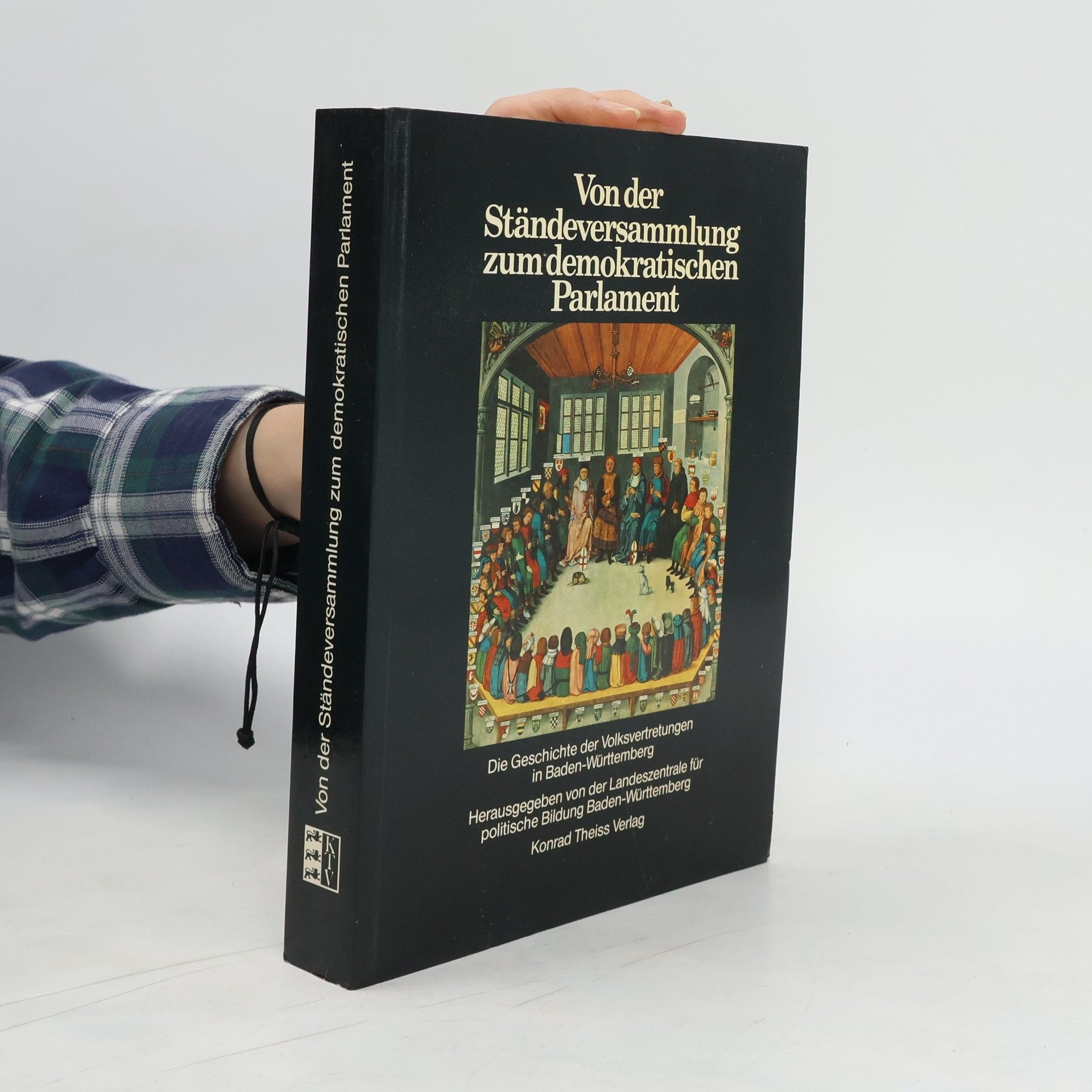From the Communal Reformation to the Revolution of the Common Man brings together important studies related to a coherent interpretation of the Reformation and the Peasants War of 1525 as a mass movement, rooted in the structures of the communities of towns and villages. The volume presents both detailed studies from the archives and conceptualized essays.
Peter Blickle Libri
Peter Blickle è uno storico specializzato nella Riforma e nelle comunità della prima età moderna. Il suo lavoro offre profonde intuizioni sulle strutture sociali e sui movimenti religiosi trasformativi di quest'epoca cruciale.






This book, first published in 1984, brings together three essays written by specialists in German history of the sixteenth and seventeenth centuries whose important work is examines the politics, religious changes and social situations around the social protest movements of the period.
Was tut ein armer Schlucker, der eine Million erbt? Daniel Dorner aus Berlin, 35, Hausbesetzer, muss entscheiden, was er mit dem vielen Geld denn macht, das ihm sein amerikanischer Onkel so unverhofft vermacht hat. Dafür reist er in die USA, »schaut sich um« – und kämpft Tag für Tag im Waldseehaus und dem ihm zugeteilten Besitz mit sich selbst: hin- und hergerissen zwischen seinem sozialen Gerechtigkeitsideal und seiner womöglich rosigen Zukunft. Peter Blickle erzählt mit viel Esprit und Sprachwitz von unser aller Widersprüchlichkeit und konfrontiert uns mit der unleugbaren Tatsache, dass wir in moralisch prekären Situationen doch (fast) alle dazu neigen, uns zu unsren eignen Gunsten zu entscheiden. Die Erbschaft ist ein packender Roman, eine ethische Herausforderung in Sachen Soll, Haben oder Sein. Für potentielle Erben wie für potentielle Nichterben, gleichermaßen, eine Probe auf Theodor Fontanes sarkastisch auf den Kopf gestellte Sentenz: »Moral ist gut, aber Erbschaft ist besser« …
Von der Leibeigenschaft zu den Menschenrechten
Eine Geschichte der Freiheit in Deutschland
Natur des Menschen frei, die in die Forderung nach Herstellung von Freiheit und Eigentum in der Aufklärung mündeten.
Die Argumentationsschritte sind in den folgenden Überlegungen angedeutet: Was verstehen Bauern und Bürger unter Reformation, und wieweit läßt sich ein gemeinsames Reformationsverständnis feststellen (1)? Was übernimmt die bäuerlichbürgerliche Gesellschaft von den Reformatoren, und wo ist sie originär, anders gewendet, gibt es eine eigene Reformation der einfachen Leute (2)? Schließlich - wie erklärt sich der Rezeptionsprozeß in der Gesellschaft (3)?
Der Bauernkrieg
- 144pagine
- 6 ore di lettura
Hunderttausend tote Bauern – die Zahl lief um im Reich und war allgemein die grobe Aufsummierung dessen, was man gerüchteweise von den Schlachten des Bauernkriegs gehört hatte. „Das vergossene Blut des Jahres 1525“, schrieb ein Schweizer Beobachter, sei ausreichend, „alle Tyrannen zu ertränken“. Waren die Forderungen und Aktionen des Gemeinen Mannes so revolutionär, daß Fürsten und Adel sie wie Hochverrat und Landfriedensbruch behandeln mußten? Peter Blickle erklärt im vorliegenden Band, wie die Aufständischen einen Diskurs über Freiheit und Gerechtigkeit auslösten, der im Erfolgsfall zur Ausweitung kommunaler Rechte der Dörfer und Städte geführt und damit das Reich stark republikanisiert hätte. Daß der Bauernkrieg zur Revolution werden konnte, ist nicht zuletzt den Reformatoren geschuldet, mehr Huldrich Zwingli als Martin Luther. Schon deswegen, aber auch wegen seiner großen Ausdehnung in der Schweiz und Österreich, ist er nicht nur ein deutscher. Auch war er keineswegs folgenlos. Der Autor hebt heraus, daß die nach der militärischen Niederwerfung geschlossenen Verträge den Untertanen für ihre Person und ihren Besitz Rechte mit verfassungsmäßigen Garantien einräumten, die modernen Menschen- und Bürgerrechten nahekommen. Er zeigt weiter, wie die gescheiterte Revolution von 1525 seit 200 Jahren für Nationalismus, Sozialismus und Liberalismus nutzbar gemacht wurde und auch auf diese Weise geschichtlich weitergewirkt hat.
Andershimmel
Roman
Andershimmel: ein anrührender, ein poetisch-sensibler Roman von starker erzählerischer Kraft, gleichsam ein schwäbisches Geschwister von Deborah Feldmans berühmt gewordenem Roman Unorthodox. Ein Roman über das Andere in uns – das andere Geschlecht, die anderen Heimaten, die anderen Religionen, die anderen Himmel. Welten prallen aufeinander – christliche und muslimische, amerikanische und deutsche, pietistische und weltliche, wissenschaftliche und spiritistische, und dabei geht es um Menschen in ihrem Ringen um Liebe und Verbundenheit, in ihrer Sehnsucht nach Erlösung.
Der Bauernjörg
Feldherr im Bauernkrieg
Aufhebung der Leibeigenschaft, Wahl des Pfarrers, Stärkung der Selbstverwaltung der Dörfer, Gesetze nach christlichen Normen – diese Forderungen der Bauern, die sie mit mächtigen Demonstrationen vertraten, wurden im Jahr 1525 Ursache für einen mit äußerster Grausamkeit geführten Krieg der Herren gegen ihre Untertanen. An der Spitze des Heeres der Fürsten, des Adels und der Städte, dem Zehntausende zum Opfer fielen, stand Georg Truchsess von Waldburg, der als Bauernjörg zu einer Schreckensgestalt wurde und dessen Geschichte dieses Buch erzählt. "Ein schöner und lesenswerter Band zu einem wichtigen Kapitel schwäbischer, deutscher, ja europäischer Geschichte." Joachim Worthmann, Stuttgarter Zeitung

